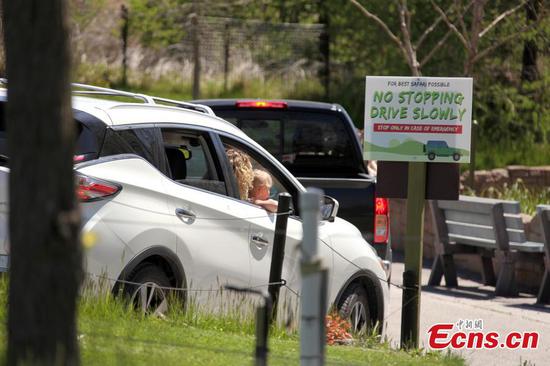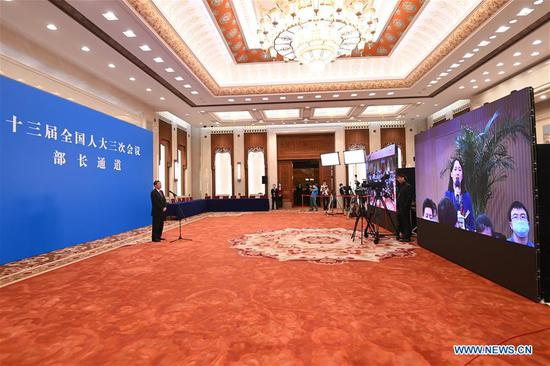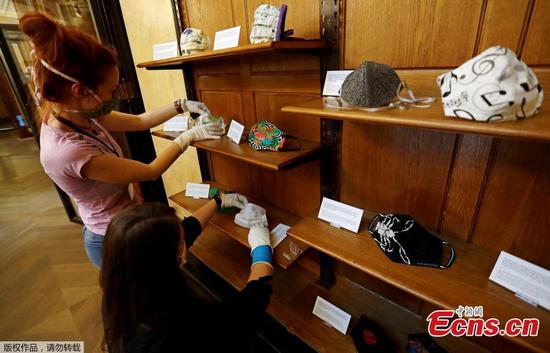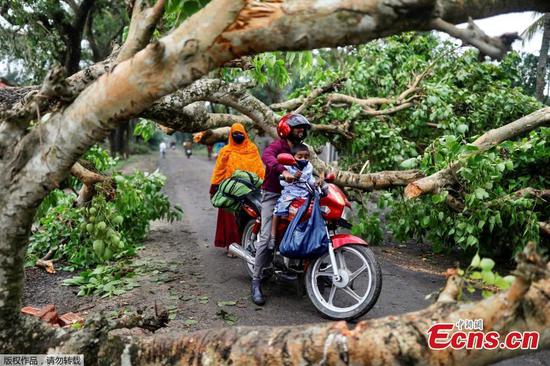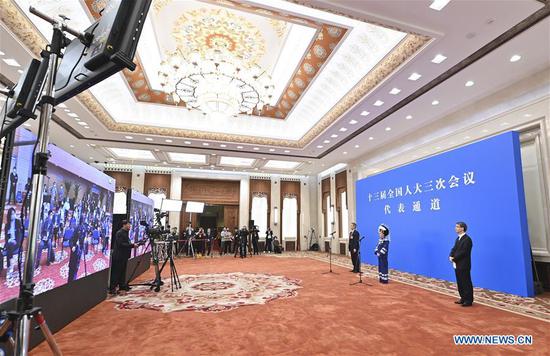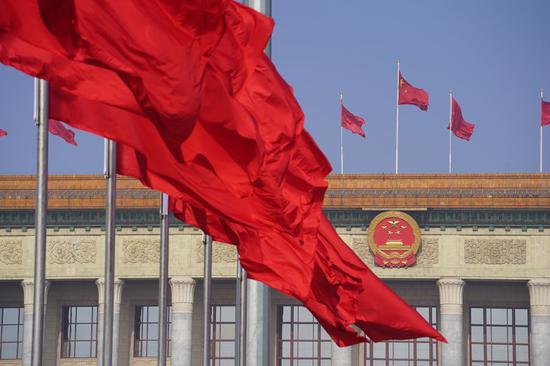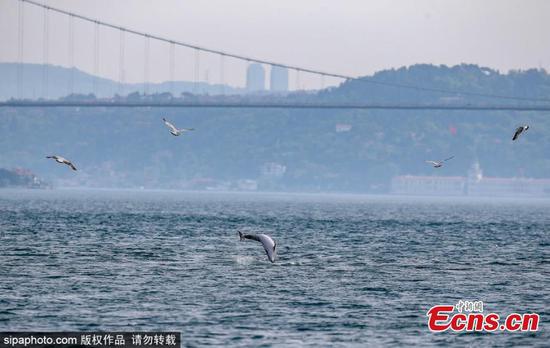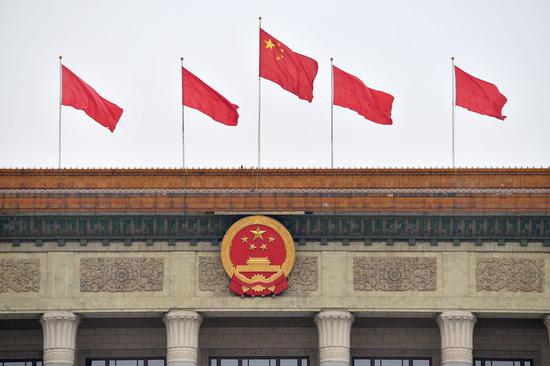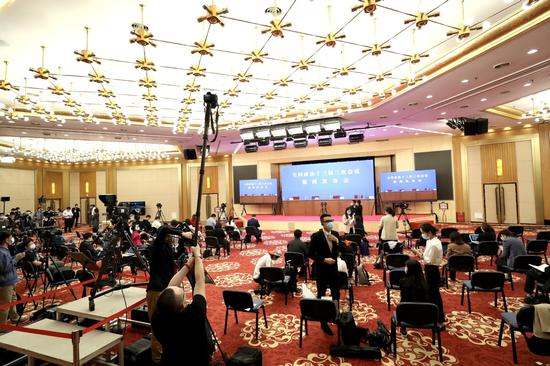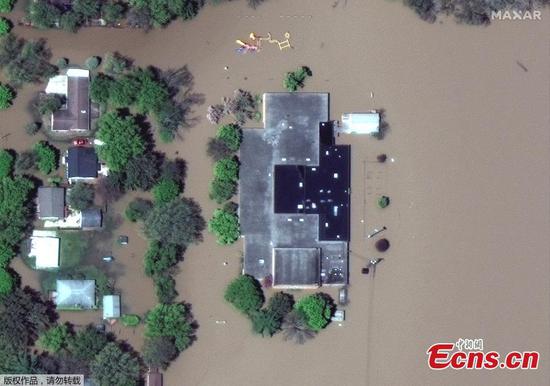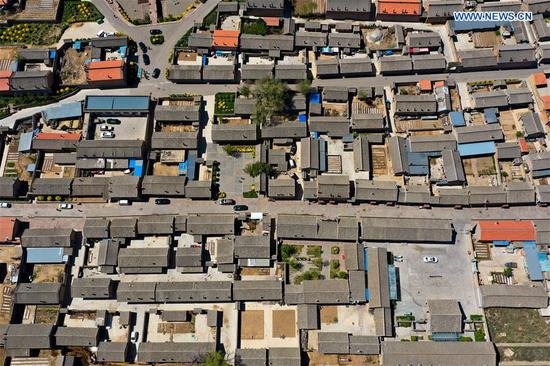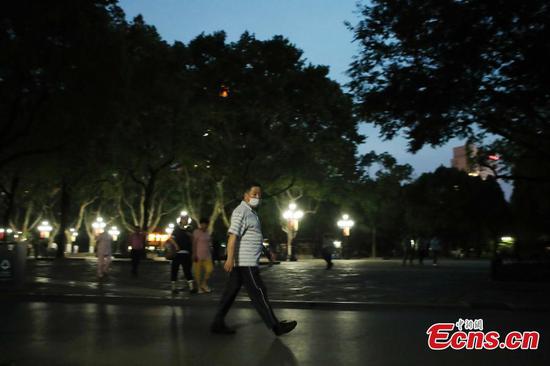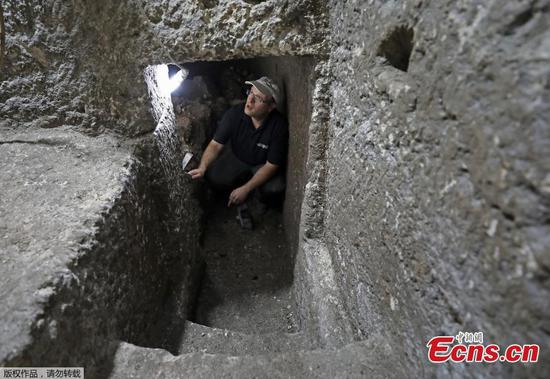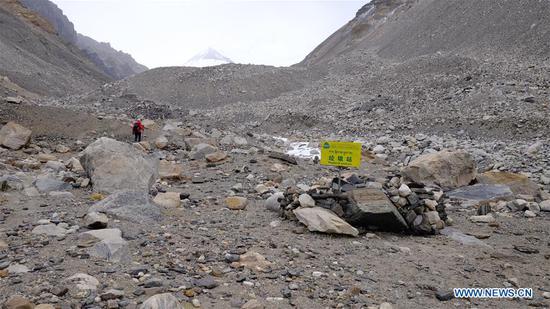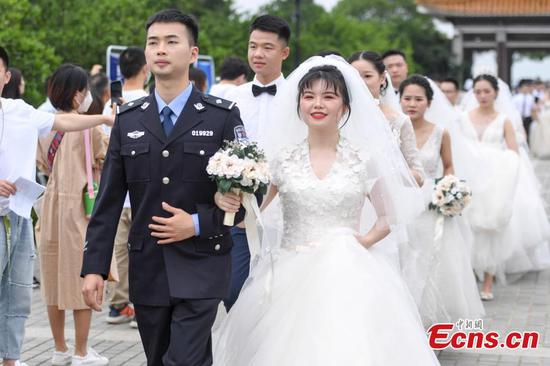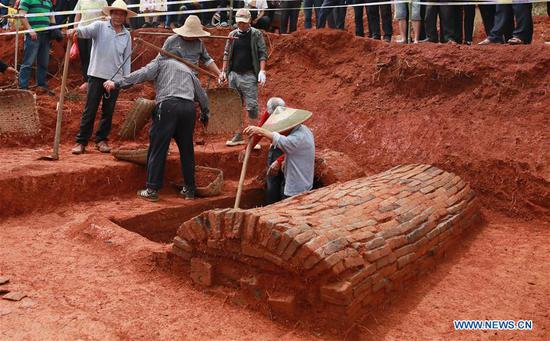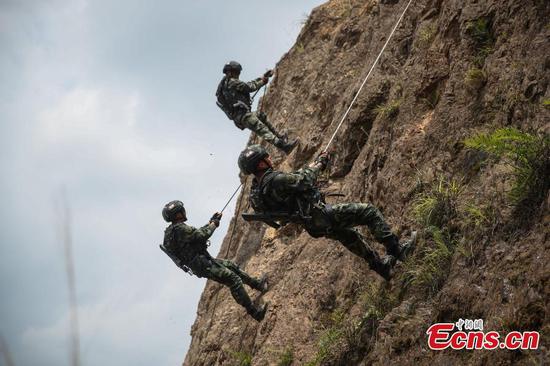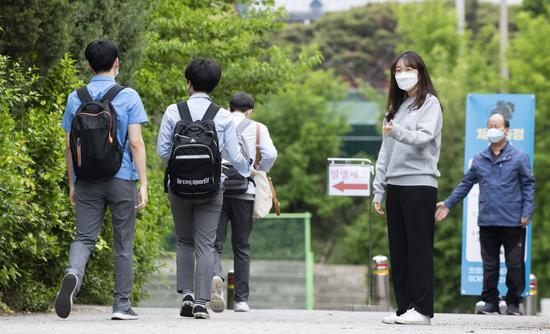The deliberation by China's top legislature on national security legislation for the Hong Kong Special Administrative Region (HKSAR) has been welcomed by many law experts in Hong Kong as a critical effort to plug loopholes in the national security system and safeguard the constitutional order established by the Constitution and the Basic Law.
A draft decision on establishing and improving the legal system and enforcement mechanisms for the HKSAR to safeguard national security was submitted to the third session of the 13th National People's Congress (NPC) for deliberation on Friday.
Legal experts in Hong Kong pointed out that the central authorities bear the ultimate responsibility for safeguarding national security, and the decision by the NPC, China's highest organ of state power, has a sufficient legal basis.
Article 31 of the Constitution provides, "The state may establish special administrative regions when necessary. The systems instituted in special administrative regions shall, in light of specific circumstances, be prescribed by laws enacted by the National People's Congress."
The NPC's decision, which is basically the exercising of the NPC's power in accordance with the Constitution to implement relevant systems in the HKSAR, has a solid legal basis, said Chu Kar-kin, a member of a research association on the Basic Laws of Hong Kong and Macao special administrative regions.
Wong Ying-ho, a solicitor in Hong Kong and a member of the National Committee of the Chinese People's Political Consultative Conference, pointed out that the Basic Law is based on Article 31 of the Constitution, and the NPC and its Standing Committee have the constitutional responsibility of safeguarding national security in the HKSAR according to Hong Kong's actual situation and needs.
Chan Man-ki, a lawyer and an NPC deputy from Hong Kong, noted that national security legislation should not be simply regarded as a matter within the scope of autonomy of the HKSAR.
It is constitutional for the central authorities to introduce national security legislation in the HKSAR in accordance with Article 18 of the Basic Law, she said.
While Article 23 of the Basic Law authorizes the HKSAR to enact laws on its own to prohibit acts endangering national security, "this authorization does not affect the central government's overall jurisdiction over Hong Kong and its overriding power to establish, improve and supervise the legal system and enforcement mechanisms in the HKSAR for safeguarding national security, as well as to supervise the implementation of the Constitution and the Basic Law in Hong Kong," Chan said.
Some legal experts stressed the need and urgency for the NPC to plug loopholes in the legal system for safeguarding national security in Hong Kong.
"Hong Kong now has laws against crimes of treason, sedition, espionage, and stealing official secrets, but other crimes such as secession and subversion are not included," said Ip Lau Suk-yee, a member of the HKSAR Legislative Council.
"In recent months, some people advocated 'Hong Kong independence,' while some called for disbanding the HKSAR government, which fall under the crimes of secession and subversion, yet Hong Kong doesn't have relevant legislation against such crimes, making such actions hard to handle," she explained.
Legal experts stressed that the NPC's introduction of the national security legislation for the HKSAR is the institutional arrangement at the state level, which does not mean it replaces or abolishes Article 23 of the Basic Law.
"Article 23 of the Basic Law remains effective," said Leung Mei-fun, a member of the HKSAR Basic Law Committee under the NPC Standing Committee," the HKSAR still has the legislative responsibility of enacting the legislation required by Article 23 of the Basic Law at an early date."
Gu Minkang, former deputy dean of the law school of the City University of Hong Kong, said the opposition forces in Hong Kong spared no efforts to demonize the legislation aimed at safeguarding national security and even urged interference from foreign countries such as the United States.
Ironically, the United States has the world's most complicated and complete law system for national security and frequently uses its domestic laws to exercise long-arm jurisdiction, Gu said. "It is typical double standard."









